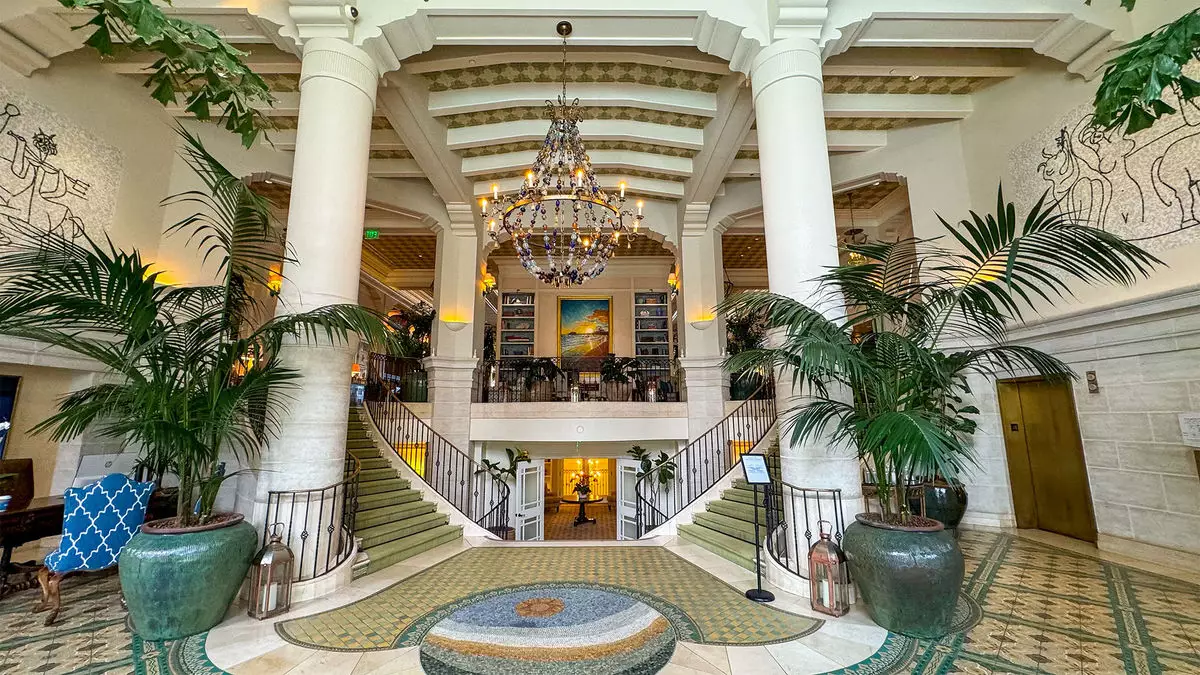On a bright January day, Malibu offers a strikingly picturesque scene. The Malibu Beach Inn, having reopened its doors just days earlier, boasts a lovely view of the Pacific Ocean and gently rolling waves lapping at the shore. Yet, beneath this tranquil facade lies the reality of destruction; merely a mile away, devastating wildfires have left swathes of land scorched and irreparably altered. The serenity surrounding Carbon Beach, where the hotel’s terrace overlooks the magnificent views, starkly contrasts the turmoil experienced by those affected by the recent blazes. While spectators might admire the natural beauty, the emptiness of the hotel’s dining area hints at the unseen challenges facing this coastal oasis.
Astonishingly, this apparent normalcy is undercut by the idle restaurant, hosting only a few patrons, and it becomes clear that Malibu is in a period of adjustment. Gregory Day, resident of the hotel and president of hospitality for the Mani Brothers real estate group, highlights an unsettling truth: the restaurant’s quietness stems from its primary guests being firefighters actively battling the ravaging flames. With over a dozen rooms occupied by Cal Fire personnel, the hotel has made significant concessions, discounting rates by as much as 40% to support those risking their lives for others.
The Palisades Fire—marking the second destructive event to touch the Malibu Beach Inn in just a month—has drawn attention to the hotel’s unprecedented response to calamity. The swift decision to engage a professional remediation team underscores the commitment to a safe and healthy environment for returning guests. As the ashes settle from the Franklin Fire and subsequent blazes, the hotel undertook a massive cleaning initiative that not only sanitized physical spaces but also prioritized the well-being of visitors, for whom the experience of returning becomes paramount.
From a hospitality perspective, the measures implemented by the hotel are commendable. The dedication to deep cleaning the entire inventory of linens demonstrates the lengths taken to restore comfort amidst turmoil, establishing a model for other businesses facing similar adversities. Beyond physical cleaning, the introduction of HEPA air purifiers and mental health support services signifies a holistic response to an unprecedented crisis. For the guests in need of solace and revitalization, the Malibu Beach Inn continues to uphold a sense of normalcy and care.
Despite assurances from local leadership that only a fraction of the landscape has been affected by the fires, the psychological impact on tourism remains palpable. Simon Fricker from the Fairmont Miramar Hotel & Bungalows recognizes that while the realities of the fires are contained, perceptions can be dramatically misleading. The outward messaging from hospitality leaders emphasizes the necessity of continued tourism, urging visitors to support businesses and communities affected by the disaster.
Such sentiments echo across the industry as hoteliers prepare for a long and arduous road to recovery from the economic repercussions of the fires. The call to action is clear: residents and tourists alike must prioritize maintaining their travel plans rather than retreating in fear of the impending effects on local businesses. This communication effort is pivotal, as leaders reinforce the notion that tourism serves as a lifeline for many families and employees directly impacted by environmental catastrophes.
A Community United: The Response of Local Businesses
The response among Santa Monica’s hotels, such as Shutters on the Beach and Hotel Casa del Mar, reveals a community spirit resilient in the face of adversity. Characterized by empathy and compassion, these establishments have mobilized their resources to assist evacuees and firefighters while continuing regular hospitality operations. Such dynamic adaptability proves to be a valuable tool for recovery, driving home the message that the community continues to stand together through thick and thin.
Furthermore, the collective decision to reduce rates for evacuees and first responders highlights a profound community commitment. This practice not only serves urgent needs but also fosters a sense of belonging for those in distress, reinforcing vital social bonds during crisis situations. Offering additional services, such as complimentary pet care, showcases their awareness of the practical challenges faced by families during such trying times.
In understanding these responses, we see more than just reaction; we witness a structured approach that tackles the multifaceted repercussions of disaster. As Malibu evolves post-fire, the resilience of its businesses and community remains unyielding, undeniably showcasing the power of unity and support during turbulent times.
As Malibu confronts the ongoing consequences of its recent blazes, the path forward is paved with challenges and opportunities alike. The critical reopening of the Pacific Coast Highway will signal a pivotal moment for the local economy, facilitating easier access for both tourists and businesses alike. Gregory Day aptly notes that this moment will be a „game changer,“ as connections are reinstated and a semblance of normalcy resumes.
Tourism is essential for revitalizing community spirits and encouraging economic recovery. Emphasizing perseverance, collaboration, and restoration, Malibu prepares for a future where harmony between natural beauty and human resilience prevails, proving that even in times of adversity, the indomitable spirit of community shines through.


Napsat komentář